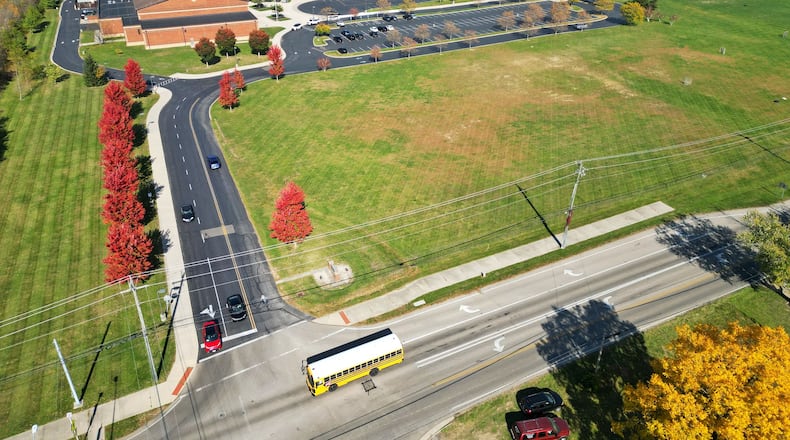Ohio Rep. Thomas Hall, R-Madison Twp., said if things go to plan, they could have a vote on the bill this fall.
Hall, who is sponsoring this bill with Rep. Josh Williams, R-Sylviania Twp., said he’d like to have one more House Judiciary Committee hearing before the Statehouse’s legislative summer break at the end of June. They still have some work to do on the bill, Hall said.
“The bill would only apply to active school zones, so one of the things I tasked the committee with is the definition of ‘active.’” Hall said. “Is that at a certain time of the day? Is that only when schools have flashing lights? Every school district in Butler County is so different, and you can only imagine what that is like throughout the entire state.”
Under the proposed law, fines would be doubled, and the driver could be convicted of a felony. Aspen’s Law would increase the penalties for vehicular manslaughter and vehicular assault that involve speeding or the commission of a traffic offense in an active school zone to felonies.
“We don’t treat school zones as severe, so we’re trying to fix that,” said Hall.
Hall and Williams testified during the first House Judiciary Committee hearing for HB 203, and a week later, Christina Alcorn, the mother of Aspen Runnels, among others impacted by similar accidents, testified.
Alcorn said she found out driver Kaitlyn Hyde would be charged with a first-degree misdemeanor several weeks after Runnels died from his injuries.
“I was completely shocked,” said Christina Alcorn to the Ohio House Judiciary Committee on May 14, a year to the day since the last time she heard “I love you” from her son.
On May 15, 2024, Runnels, a 15-year-old Lakota East freshman, was walking in the crosswalk at the intersection of Bethany Road and Liberty Court, just after 2 p.m. Hyde, a young mother who police say was distracted by tending to her baby, was behind the wheel. She pleaded guilty in October to vehicular homicide and was sentenced in December to 120 days in jail with 90 days counting as time served. Her sentence was divided into 30 days in jail and 60 days under house arrest. Her license was also suspended for five years.
“The prosecutor met with us and explained how Ohio law is interpreted for this offense,” she said. Hyde’s case was presented to the grand jury in hopes of a felony charge.
That didn’t happen.
“This is when I embarked on a journey, along with Trisha Parnell, to get the law changed,” she said.
Parnell’s daughter, Madisyn “Maddy” Beare, was struck by a car on Nov. 1, 2018, near Lakota West High School, suffering severe injuries and unable to walk for months after the accident. She survived.
Beare was crossing in an active school zone when a speeding car struck her and threw her 84 feet. Beare chipped her shoulder blade, broke her collarbone and ankle, had four breaks in her pelvis and tore an ACL.
“By the grace of God and a large backpack, she did not hit her head,” Parnell said. “That backpack literally saved her life.”
That crosswalk is a daily reminder for Parnell.
“Maddy is resilient and strong,” she said. “She decided she wasn’t going to let that moment define her, but as her mom, I can never let that moment go. Then, on May 15, 2024, tragedy struck again, this time far worse than (over) five years prior. I shook and cried as I read about Aspen’s accident.”
“These are not isolated events,” Beare said to the committee, referring to the accident involving herself, Runnels and a third Lakota student — a 17-year-old Butler Tech student was struck near Lakota West High School in September. “[T]here is a right and wrong answer here.”
She made a promise that Runnels’ story would not be forgotten.
“I will not accept Aspen being remembered only by the people whose lives he immediately touched,” said Beare, adding although she never met Runnels, they are forever connected. I have a voice for both of us.”
About the Author



